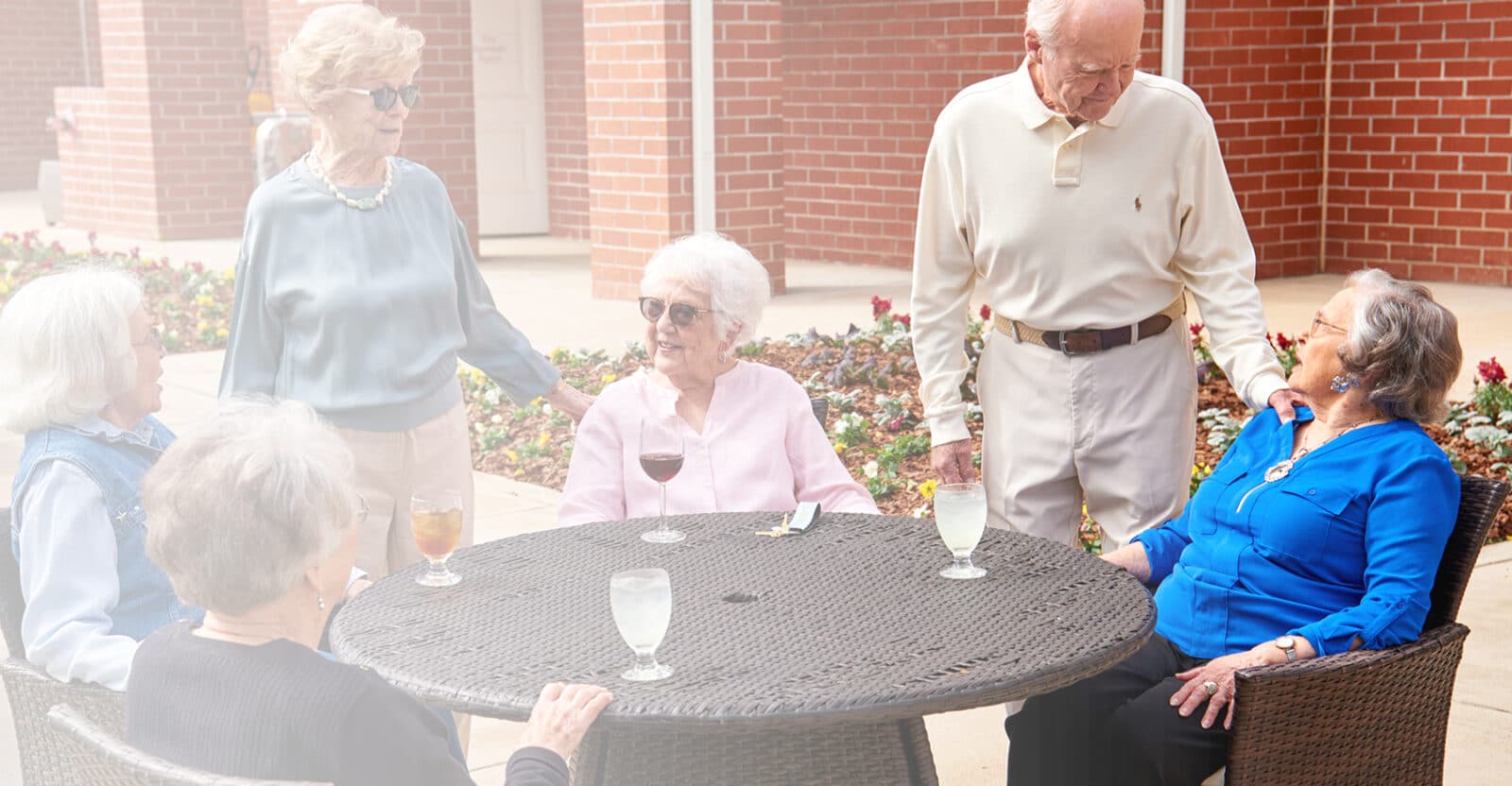Uplifting Memory Care
Seniors — particularly those with memory loss — may have fewer opportunities to socialize as they age. It may be that getting out of the house has become more difficult, their circle of friends has become smaller, or their memory impairment interferes when participating in activities. Whatever the reason, it’s common for older adults to socialize less and less, resulting in loneliness, isolation and a reduced quality of life.
On the contrary, seniors with steady social support systems can have reduced stress, fewer instances of anxiety and depression, and decreased risk for many health concerns. For individuals with Alzheimer’s disease and other forms of dementia, engaging with other people in social situations has been shown to be particularly helpful and may even slow the progress of these conditions. One study found that cognitive abilities declined 70 percent more slowly in individuals with frequent social connections than those with little social contact.
The National Institute on Aging recognizes a strong correlation between social interaction and the health and well-being of seniors. Socialization supports brain health, and while the exact function is not yet completely understood, individuals with a strong social network generally retain more memories than peers who are more isolated.
Lastly, feeling lonely or isolated can have a physical as well as emotional impact on older adults. Seniors who are chronically lonely often have elevated systolic blood pressure and are also at greater risk for depression.
At The Crossings at Eastchase, our highly trained caregivers work closely with residents and families to develop a personalized plan based on their unique needs. This exceptional individualized care is accompanied by a thoughtful range of services, including family-style meals as well as weekly housekeeping, laundry and scheduled transportation. Our innovative programming, specialized therapies and enriching activities enhance the quality of life of memory care residents. Memory Care at The Crossings combats isolation with meaningful opportunities for socialization readily available to your loved one – so you can feel assured of their health and overall well-being.

